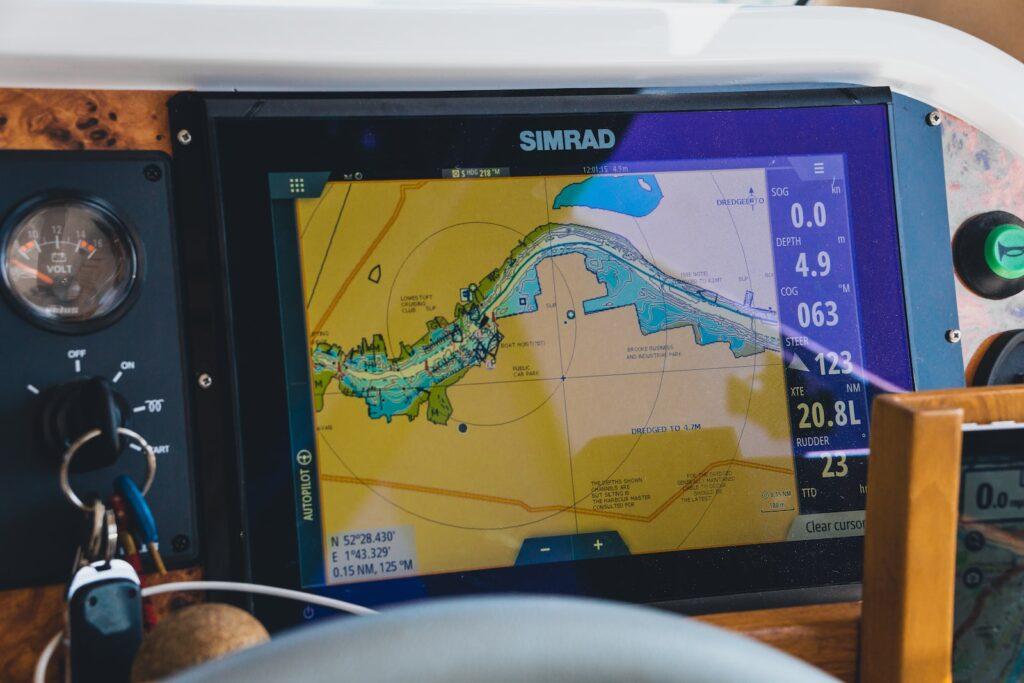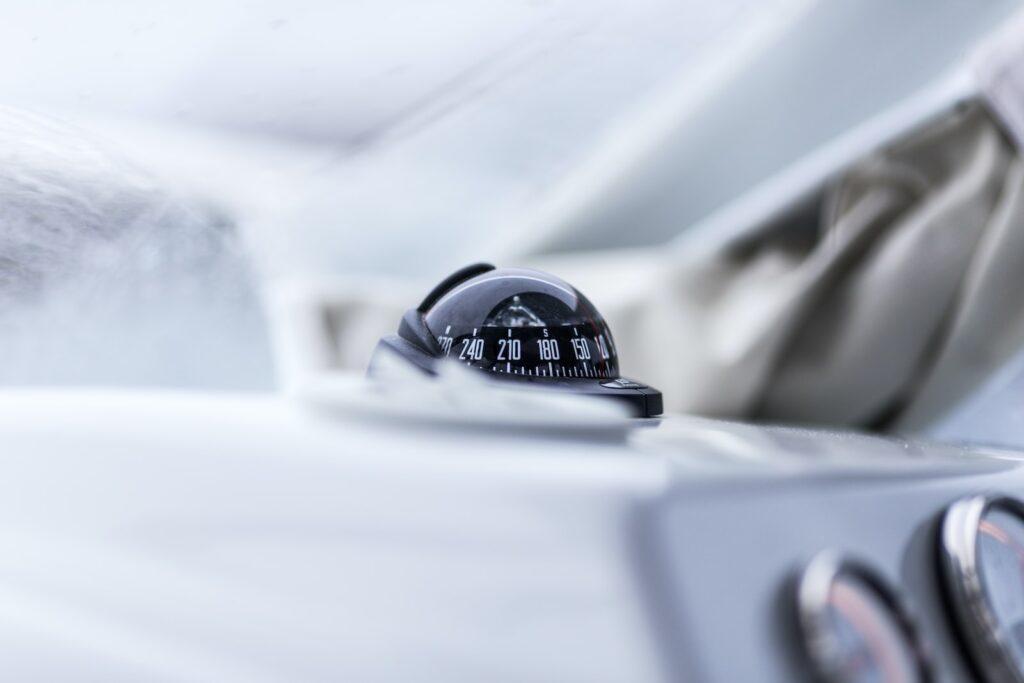Best GPS for Boat — Everything You Need to Know
When it comes to boating, having a reliable GPS (Global Positioning System) on board is essential for safe and accurate navigation. Whether you’re cruising along coastal waters or exploring vast open seas, a quality GPS can provide you with real-time positioning, route planning, and important navigational information. With numerous options available in the market, it’s important to understand the features, functionality, and performance of different GPS devices to choose the best one for your boating needs.
What is the best GPS system for a boat
Now that you have a better understanding of the features to look for in a GPS system, let’s take a look at some of the best GPS systems for boats:
- Garmin GPSMAP 78sc: This handheld GPS device is specifically designed for marine navigation. It offers a bright color display, preloaded coastal charts, and a high-sensitivity GPS receiver for accurate positioning. It also features a built-in compass, barometric altimeter, and a microSD card slot for adding additional maps.
- Lowrance HDS LIVE: This advanced GPS/chartplotter is known for its excellent sonar capabilities and detailed mapping features. It offers a large, high-resolution touchscreen display, integrated wireless connectivity, and support for various mapping options. The HDS LIVE series is popular among anglers and boaters who need comprehensive navigation and fish-finding capabilities.
- Raymarine Axiom: The Raymarine Axiom series combines GPS, chartplotting, and sonar functions into a powerful multifunction display (MFD) unit. It features a high-definition touchscreen display, support for multiple chart formats, and compatibility with advanced sonar modules. The Axiom series is known for its user-friendly interface and integration with other marine electronics systems.
- Simrad NSS Evo3: Simrad is renowned for its advanced marine electronics, and the NSS Evo3 series is no exception. These multifunction displays offer intuitive touchscreen control, detailed mapping, and powerful sonar capabilities. They also support radar, autopilot, and integration with other Simrad systems, providing a comprehensive navigation solution.
- Furuno NavNet TZtouch3: The Furuno NavNet TZtouch3 series offers high-resolution displays, advanced chartplotting, and radar integration. These MFDs provide powerful navigation tools and support for a wide range of chart formats. Furuno is known for its high-quality marine electronics, and the TZtouch3 series continues that tradition.
Make sure to have best marine radio to enhance Your navigation skills. The best GPS system for a boat will depend on the type of boat and its intended use. Generally speaking, a good GPS system for a boat should have a high-quality antenna and a large, easy to read display with a good resolution. It should also provide accurate and reliable navigation data, and be waterproof and shock resistant. Look for a GPS system with advanced features such as navigation maps, route planning, and AIS integration for tracking other boats in the area.

Consider the type of vessel and its main use when selecting a GPS system. Some systems are designed specifically for recreational boats, while others are designed for commercial or racing use. For recreational use, look for a GPS system with a simple and intuitive user interface, and a wide range of features such as tide and current information, weather forecasts, and waypoint markers. For commercial or racing boats, look for a system with enhanced features such as chart plotting and route optimization. Other features to consider include satellite imagery, automated alerts, and radar integration.
How do I choose a best boat GPS
Choosing the right boat GPS is an important decision and requires some research. When deciding on a GPS, it is important to consider your budget, the features you need, the type of boat you have, and the type of navigation you need. Research the different types of GPS systems available, such as stand-alone, chartplotter, or sonar systems, to determine which one is best for your needs.
- Purpose: Determine how you will use the GPS. Are you primarily looking for navigation and chartplotting features, or do you also require advanced sonar capabilities for fishing? Understanding your specific needs will help you narrow down the options.
- Display: Look for a GPS with a bright, high-resolution display that is easy to read in various lighting conditions. Consider the size of the display as well, ensuring it is large enough to view comfortably without compromising space on your boat.
- Charts and Mapping: Check the availability and quality of charts and maps that come preloaded or are compatible with the GPS. Ensure that the areas you plan to navigate are covered and that the charts offer the level of detail you require.
- GPS Accuracy: Look for a GPS system with high accuracy to ensure precise positioning and navigation. GPS systems with WAAS (Wide Area Augmentation System) capability offer enhanced accuracy by utilizing additional satellite data.
- Ease of Use: Consider the user interface and ease of operation. Look for a GPS that has an intuitive menu system, easy-to-use controls, and a responsive touchscreen if applicable. A user-friendly interface will make your navigation experience more enjoyable.
- Connectivity: Consider whether you need additional connectivity features such as wireless connectivity, Bluetooth compatibility, or integration with other marine electronics on your boat. These features can enhance functionality and allow for seamless data transfer and sharing.
- Durability and Water Resistance: Since your boat GPS will be exposed to the marine environment, ensure that it is designed to withstand water, moisture, and other harsh conditions. Look for models with waterproof or water-resistant ratings to ensure long-lasting performance.
Once you have determined the type of GPS you need, look for additional features such as mapping capabilities, built-in sonar, and a compass or autopilot. Consider the size of the unit, the display type and resolution, and the durability of the unit.
What is the easiest GPS to use on a boat
The easiest GPS to use on a boat is the Garmin GPSMAP 8400xsv. It is designed to make navigation easy with its intuitive user interface and large, full-color touchscreen display. It comes with built-in charts and maps, and has a variety of features designed to make navigation easier, including a dedicated mariner’s keypad, easy-to-use navigation pages, and support for multiple types of marine navigation data. It also supports NMEA 2000 for easy integration with other devices, such as fishfinders or autopilots.
Types of GPS Systems

When selecting a GPS system for a boat, it is important to understand the differences between the various types that are available. Some of the most popular types of GPS systems for boats include:
Marine Chartplotters are the most common type of GPS system used on boats. They are designed to provide a detailed map of the area you are sailing in and can help you navigate safely and accurately. Chartplotters are typically connected to a larger navigation system that can provide a variety of features, such as weather forecasts, tide information, and more.
Handheld GPS Units are ideal for small boats or for those who do not require a full-featured navigation system. Handheld units are typically smaller and more affordable than chartplotters, and they are designed to provide basic navigation features such as waypoint marking and route tracking.
Radar systems are an important tool for boaters, as they provide a detailed picture of the area you are sailing in. Radar systems are typically used in conjunction with chartplotters, and they can help you identify potential hazards, such as rocks and shallow waters.
Autopilots are a more advanced type of navigation system that allow you to set a course and have the boat automatically follow it. Autopilots are typically used on larger boats and can help reduce fatigue and provide more accurate navigation.
GPS systems are divided into two main categories: active and passive. Active GPS systems use satellite signals to actively track the location of a person or object, whereas passive GPS systems use existing signals to provide location-based services. Active systems typically require a user to have a receiver, such as a mobile phone, while passive systems may not require a receiver at all. Examples of active systems include marine navigation systems and aircraft tracking systems, while passive systems include car navigation systems and mobile phone tracking systems. You can also check what is the best boat for the great loop.
Features of a Good GPS System

When selecting a GPS system for your boat, there are a few important features to look for. Some of the most important features to consider include:
- Accuracy: The accuracy of a GPS system is perhaps the most important factor to consider. The system should be able to provide accurate and reliable navigation data, so that you can be sure you are heading in the right direction.
- Durability: GPS systems can be exposed to a variety of elements while out on the water, so they need to be durable enough to withstand these conditions. Look for GPS systems that are waterproof and shockproof to ensure they will last for a long time.
- Battery Life: GPS systems are powered by batteries, so it is important to make sure the system you choose has a long battery life. Look for systems that have a battery life of at least 8 hours, as this will ensure you can use the system for long periods of time.
- Ease of Use: GPS systems should be easy to use, so that you can quickly and easily access the features you need. Look for systems that have a user-friendly interface and clear display, so that you can quickly understand how the system works.
- Price: GPS systems come in a variety of price ranges, so it is important to choose one that fits within your budget. Look for systems that offer the features you need at an affordable price, as this will ensure you get the most value for your money.
Accuracy is important for GPS systems because it ensures that users can get to their destinations safely and quickly. Reliability is important for GPS systems because users should be able to trust them to provide accurate information. User-friendliness is important for GPS systems because users should be able to easily understand and use the system. Also make sure if Your navigation lights are on point.
FAQs
What is the best GPS for my boat?
The best GPS for your boat depends on various factors such as the size of your boat, your navigation needs, and your budget. Some popular options include Garmin GPSMAP series, Raymarine Axiom series, and Lowrance HDS series. It’s recommended to consider the features, ease of use, and compatibility with your boat’s electronics when choosing the best GPS for your specific requirements.
Can I use my smartphone as a GPS for my boat?
Yes, you can use your smartphone as a GPS for your boat by downloading marine navigation apps such as Navionics, iNavX, or Garmin BlueChart. These apps utilize GPS technology and provide access to detailed charts, navigation tools, and other useful features.
Do I need an internet connection for a GPS on my boat?
No, most GPS systems for boats do not require an internet connection to function. They rely on GPS satellite signals to determine your boat’s position and provide navigation information. However, some GPS systems offer additional features such as real-time weather updates or chart updates that may require an internet connection.
Conclusion
GPS systems are an important tool for boaters, as they enable them to easily find their way and avoid potentially dangerous situations. When selecting a GPS system, it is important to consider the features you need and choose one that fits within your budget. The three GPS systems listed above are some of the best on the market and offer a variety of features to help you stay safe and on course while out on the water.
